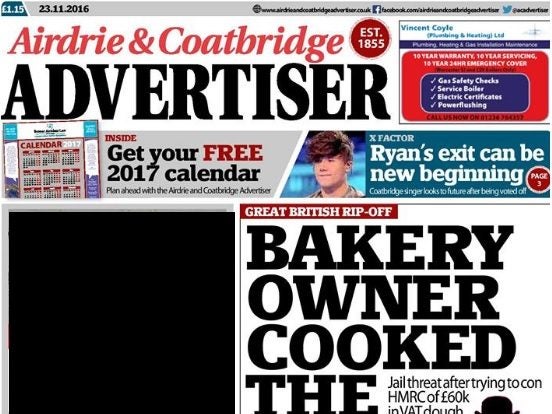
A Scottish weekly newspaper published information that might have lead to a child sex abuse victim being identified, press regulator the Independent Press Standards Organisation has ruled.
The Airdrie and Coatbridge Advertiser included the details in a front page story about an individual convicted of historical sexual assault against two children.
The newspaper reported witness evidence about the location of the offences and how the victims and defendant were associated with the location.
IPSO said the story also included details of the time over which the offences occurred, how old the victims were at that time and their current ages.
An online version of the story did not feature the current ages of the victims, the regulator added.
One of the victims complained to IPSO that the article featured details that identified her, adding that she was “identified as the victim in the case by members of her local community”.
They added that the story was “deeply upsetting” and “an unjustified intrusion into her privacy”.
The Advertiser said it regretted that the article had upset and distressed the victim but argued it did not publish excessive information from court that may have identified her.
It added that it was “entitled to report court proceedings held in public, in the public interest,” according to the ruling.
IPSO found the newspaper had breached the Editors’ Code of Practice under Clause 11 (victims of sexual assault).
In its ruling, the regulator said: “It is a fundamental principle of open justice that court proceedings are reported by the media in an open and transparent way.
“Both the law and the code requires that, when upholding this fundamental principle in cases involving sexual assault, a publication must not publish material likely to lead to the identification of the victim.”
IPSO later added that it believed the combination of details given in the story “represented information which would be known to the complainant’s community, particularly those who knew the defendant and the complainant, and was likely to lead to her identification as a victim in the case”.
The Advertiser was ordered to publish a copy of its ruling on page two of the newspaper, where the identifying details appeared, and within the top half of its stories online.
It did not find the newspaper in breach of Clause 1 (accuracy) and Clause 2 (privacy) of the Editors’ Code.
Read the full IPSO ruling.
Email pged@pressgazette.co.uk to point out mistakes, provide story tips or send in a letter for publication on our "Letters Page" blog
